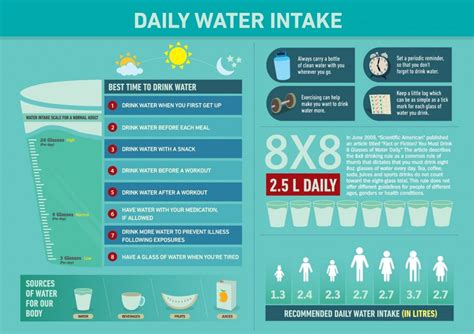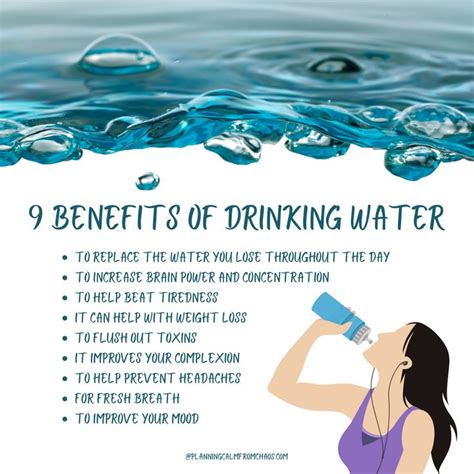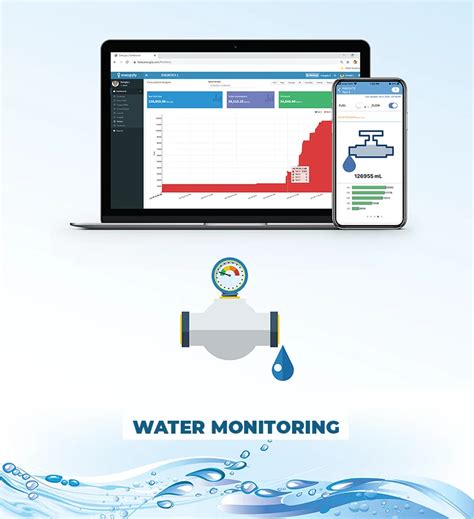Intro
Discover the ideal daily water intake, staying hydrated with recommended amounts, and learn about dehydration, fluid balance, and healthy drinking habits.
Staying hydrated is essential for maintaining proper bodily functions, and water plays a crucial role in this process. The human body is composed of approximately 60% water, and it is necessary for various functions such as regulating body temperature, transporting nutrients, and removing waste products. Despite its importance, many people do not drink enough water, which can lead to dehydration and other health issues. In recent years, there has been a growing interest in the recommended water intake, with many experts and health organizations providing guidelines on the amount of water individuals should consume daily.
The importance of adequate water intake cannot be overstated. Water helps to maintain skin health, promotes digestion, and supports kidney function. Even mild dehydration can cause symptoms such as headaches, fatigue, and difficulty concentrating. Furthermore, severe dehydration can lead to serious health problems, including heat stroke, kidney damage, and even death. With the increasing awareness of the importance of hydration, many people are seeking to understand the recommended water intake and how to incorporate it into their daily routine.
In addition to the general importance of water intake, there are various factors that can influence an individual's hydration needs. For example, athletes and individuals who engage in strenuous physical activity require more water to replenish lost fluids and electrolytes. Similarly, people living in hot and humid climates may need to drink more water to compensate for increased fluid loss due to sweating. Pregnant and breastfeeding women also have higher water needs to support fetal growth and milk production. Understanding these factors is essential for determining the recommended water intake and making informed decisions about hydration.
Understanding Water Intake Recommendations

The recommended water intake varies depending on factors such as age, sex, weight, and activity level. The general guideline is to drink at least eight 8-ounce glasses of water per day, which is equivalent to approximately 2 liters. However, this is only a general guideline, and individual needs may vary. For example, the National Academies of Sciences, Engineering, and Medicine recommend a daily water intake of 2.7 liters for women and 3.7 liters for men. Additionally, the American Heart Association suggests that individuals drink 8-10 cups of water per day.
Factors Influencing Water Intake
Several factors can influence an individual's water intake needs, including: * Age: Older adults may need to drink more water due to decreased thirst sensation and changes in body composition. * Sex: Pregnant and breastfeeding women require more water to support fetal growth and milk production. * Weight: Individuals with a higher body mass index (BMI) may need to drink more water to support their larger body size. * Activity level: Athletes and individuals who engage in strenuous physical activity require more water to replenish lost fluids and electrolytes. * Climate: People living in hot and humid climates may need to drink more water to compensate for increased fluid loss due to sweating.Benefits of Adequate Water Intake

Adequate water intake has numerous benefits for overall health and well-being. Some of the benefits include:
- Improved skin health: Drinking enough water helps to maintain skin elasticity and hydration, reducing the appearance of wrinkles and fine lines.
- Boosted energy levels: Even mild dehydration can cause fatigue and low energy levels, which can be alleviated by drinking enough water.
- Support for kidney function: The kidneys need water to function properly, and adequate hydration helps to prevent kidney stones and other kidney problems.
- Promotion of digestive health: Water helps to prevent constipation and maintain regular bowel movements, reducing the risk of digestive disorders.
Consequences of Inadequate Water Intake
Inadequate water intake can have serious consequences for overall health and well-being. Some of the consequences include: * Dehydration: Severe dehydration can lead to heat stroke, kidney damage, and even death. * Fatigue and low energy levels: Even mild dehydration can cause fatigue and low energy levels, reducing productivity and overall quality of life. * Skin problems: Inadequate hydration can cause skin problems such as acne, dry skin, and premature aging. * Digestive problems: Inadequate water intake can cause constipation, bloating, and other digestive disorders.Practical Tips for Increasing Water Intake

Increasing water intake can be simple and easy with a few practical tips. Some tips include:
- Drinking a glass of water as soon as you wake up to rehydrate after a night of sleep.
- Keeping a water bottle with you throughout the day to remind you to drink regularly.
- Infusing water with fruits or herbs to give it a refreshing taste.
- Monitoring urine output to ensure that you are drinking enough water (urine should be pale yellow or clear).
Common Myths About Water Intake
There are several common myths about water intake that can be misleading. Some of the myths include: * The idea that you need to drink eight 8-ounce glasses of water per day (this is only a general guideline, and individual needs may vary). * The notion that drinking water can help you lose weight (while water may help with weight loss, it is not a magic bullet for weight loss). * The belief that you can get enough water from other fluids such as soda or juice (while these fluids may contain water, they are not a substitute for plain water).Monitoring Water Intake

Monitoring water intake is essential for ensuring that you are drinking enough water. Some ways to monitor water intake include:
- Using a water tracking app to track daily water intake.
- Keeping a water log to record daily water intake.
- Monitoring urine output to ensure that you are drinking enough water (urine should be pale yellow or clear).
Overcoming Barriers to Water Intake
There are several barriers that can prevent individuals from drinking enough water. Some of the barriers include: * Lack of access to clean drinking water. * Unpleasant taste or odor of water. * Forgetfulness or lack of reminders to drink water. * Physical limitations or disabilities that make it difficult to drink water.Conclusion and Recommendations

In conclusion, adequate water intake is essential for maintaining proper bodily functions and overall health and well-being. While the recommended water intake varies depending on individual factors, the general guideline is to drink at least eight 8-ounce glasses of water per day. It is essential to monitor water intake and overcome barriers to drinking enough water. By following practical tips and understanding the benefits and consequences of water intake, individuals can make informed decisions about their hydration needs.
To encourage readers to take action, we invite you to share your thoughts and experiences with water intake in the comments section below. How do you stay hydrated throughout the day? What are some challenges you face in drinking enough water? By sharing your stories and tips, you can help others overcome barriers to water intake and promote overall health and well-being.
What is the recommended daily water intake?
+The recommended daily water intake varies depending on individual factors such as age, sex, weight, and activity level. The general guideline is to drink at least eight 8-ounce glasses of water per day, which is equivalent to approximately 2 liters.
Can I get enough water from other fluids such as soda or juice?
+No, while these fluids may contain water, they are not a substitute for plain water. Soda and juice are high in sugar and calories, and can have negative effects on overall health and well-being.
How can I monitor my water intake?
+There are several ways to monitor water intake, including using a water tracking app, keeping a water log, and monitoring urine output. Urine should be pale yellow or clear, which indicates that you are drinking enough water.
